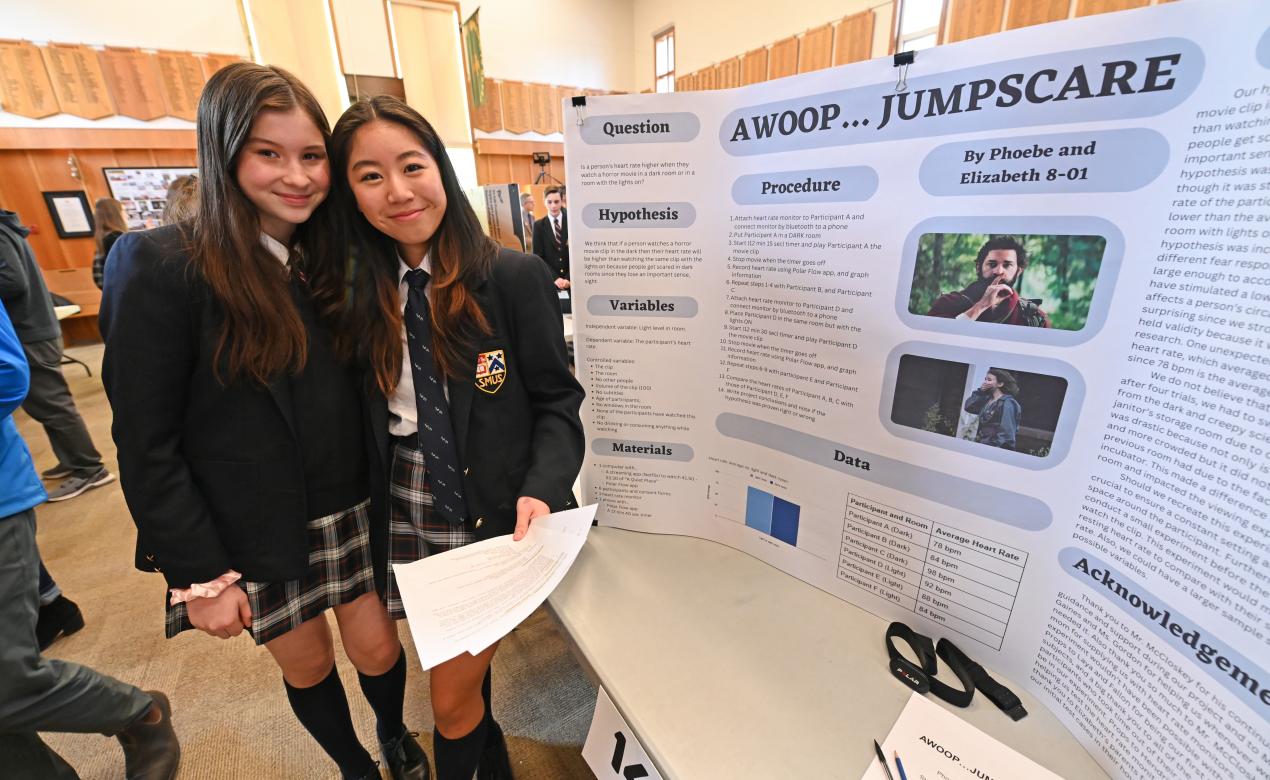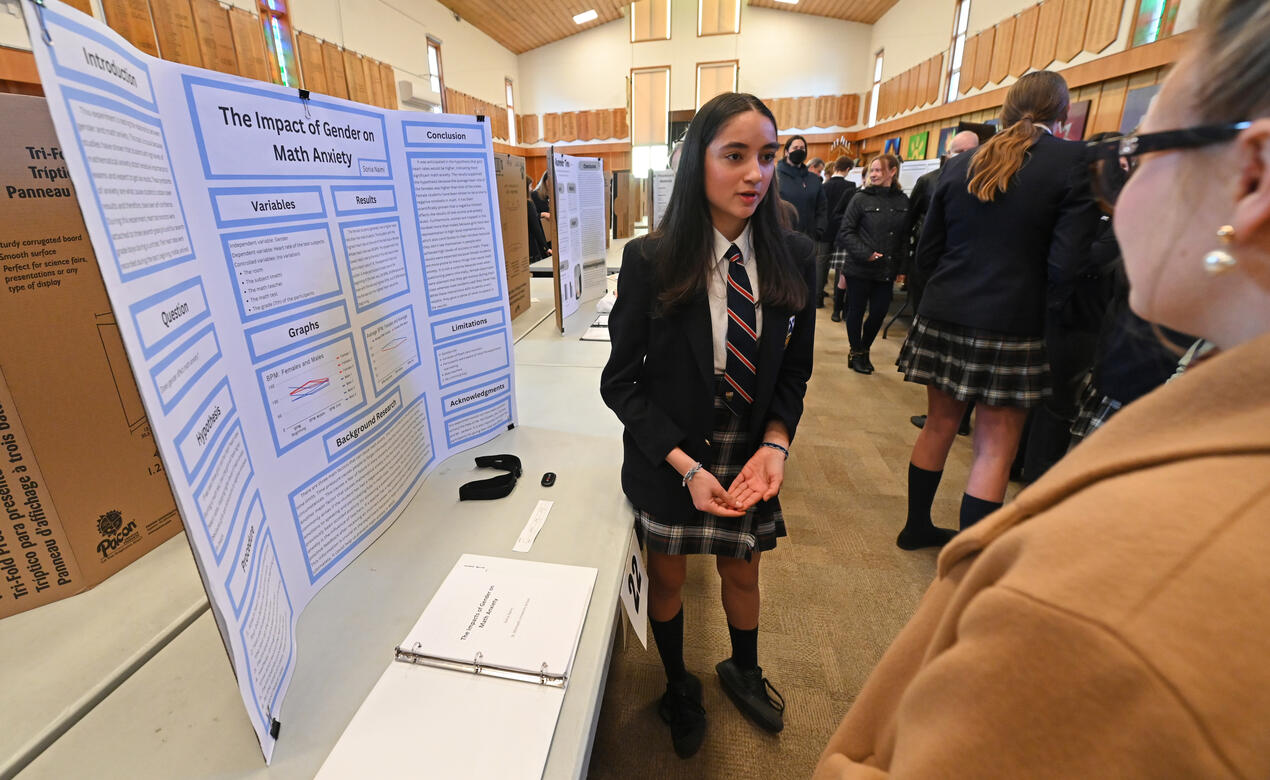
Do boys or girls feel more anxious when taking a math test?
How does the colour of food affect taste?
What does the expiry date actually mean on a jug of milk?
How much water pressure is needed to get a micro hydro power plant to spin at its fastest and most effective rate?
Does watching a horror film with the lights on make it less scary?
These are some of the innovative questions that Grade 8 students explored for their science fair projects. The Middle School hosted its annual Science Fair this week for students across all grades, impressing their teachers, parents and a panel of judges.
"It's exciting when students find something that is innovative and scientific, and it matches their interests," says teacher Jake McCloskey.
"The science fair gives students a real-world chance to think like scientists, explore great questions, and then experience the excitement, wonder and sometimes disappointment that comes from collecting results," adds teacher Sarah Donatelli.

Questions from the Heart
Grade 8 student Sonia N., who pursued the question around math test anxiety, says she loved having the freedom to study something that is important and of interest to her. She also enjoyed getting to access advanced technology – professional level heart rate monitors – to run her tests during a Grade 7 math test.
"My hypothesis was that the girls would generally have higher rates of math anxiety because through research I did I found that girls are more prone to having negative mindsets in math," she says.
Her results, she says, confirmed her hypothesis.
Grade 8 students Elizabeth H. and Phoebe M., avid horror movie fans, also used heart rate monitors to run their tests in both pitch-black and well-lit rooms at the Middle School.
"It was really fun to test on people," says Phoebe. "The results were really interesting. We averaged the heart rate of each person who watched. The difference was only one beat per minute – but the higher heart rate was in the room with the lights on!"
Learning Beyond the Science
One of the biggest parts of the science fair and being a scientist is reflection. All three scientists recognize that while they got reliable results, they can't draw any concrete conclusions since there were a lot of variables that could have impacted the studies. They all say that if they were to run the experiment again, there are many things they would want to change to help ensure greater data collection.
"There was noticeable white noise in the bright room and we had to test in a dark, tight closet for the dark room," says Elizabeth. "Next time we would want to use the same place for both tests. And we would also want more participants to collect more data."
"I would also want to test more students," adds Sonia, "And try to remove some other variables by having a control group or by testing in a different subject that isn't as stressful as math."
This idea of learning through reflection is really what the science fair is all about.
"I am a big fan of when a hypothesis is proved incorrect or when a student realizes they could have done something different because that is learning, that is science," says Jake. "Students learn so much, even if they are not correct. The end result is not the important stuff. It's all about the process: what they know now, what they didn't know before, and what they think they know moving forward."


